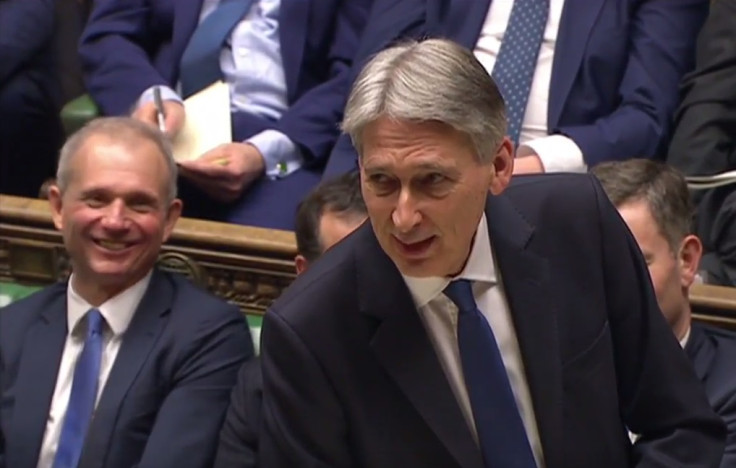Pubs among big winners as Chancellor boosts business rates relief package in Budget 2017
Hammond says 90% of pubs will get a £1,000 discount on their business rate bills.
Chancellor Philip Hammond used the Spring Budget to boost the package of help for thousands of small businesses facing hardship as a result of new changes to UK business rates.
Hammond said that he and Communities and Local Government Secretary Sajid Javid had "listened to the concerns raised by colleagues and businesses" and had produced a three-point plan to bolster the existing £9bn transitional relief package, that would take 600,000 small businesses out of the tax altogether.
The country's finance minister announced these reliefs for small businesses who pay business rates set to raise £25bn this year:
Any business coming out of small business rate relief will benefit from an extra cap – meaning their rates will not increase by more than £50 a month, and subsequently increases will be capped
There will be a £1,000 discount on business rate bills for all pubs with rateable value of less than £100,000, which accounts for 90% of all pubs
A £300m fund will be made available to councils to allow them to provide relief for "individual hard cases"
Hammond said these measures represented a further £435m of aid "targeted at those small businesses facing the biggest increases, protecting our pubs, and giving local authorities the resource to respond flexibly to local circumstances".
New business rate revaluations are set to come through in April.

Hard campaigning
Mike Cherry, chairman of the Federation of Small Businesses (FSB), said: "FSB welcomes the fact that the Chancellor has listened to the small business-led campaign on business rates. The £435m of new money is a direct and much-needed response to those facing astronomical hikes in their business rates."
The British Beer and Pub Association chief executive Brigid Simmonds added: "We very much welcome the specific help for pubs with rate relief; £1,000 off for all pubs with a rateable value less than £100,000. We campaigned very hard for this and it is vital that this is extended in future years."

Digital economy
However, the Chancellor kicked into the long grass moves to bring the modest tax take from digital economy businesses, such as Amazon and Google, into line traditional with bricks-and-mortar firms.
He said: "It is certainly true, in the medium term that we have to find a better way of taxing the digital part of the economy."
But he only promised to consult on changes and present proposals in time for the next business rates review in five years.
Self-employed
The Chancellor had more to say about the self-employed. He said the shift towards globalisation had seen "a dramatic increase in the number of people working as self-employed or through their own companies".
He said the self-employed used to have different tax rates because they had different pension arrangements.
New pensions
But he added new state pension arrangements has to a large extent removed this disparity. He added that the difference in national insurance contributions for two groups of workers is no longer justified.
Hammond said an employee earning £32,000 will incur between him and his employer £6,170 of National Insurance Contributions. But a self-employed person earning the equivalent amount will pay just £2,300.
The Chancellor said that national insurance typically paid by self-employed workers will increase from 2% to 10% in 2018, with a further 1% increase in 2019.

The Treasury said it expects this measure to raise an extra £145m by 2021-22.
Hammond then turned towards corporate taxation, where he said he did not want people forming small firms, simply to reduce their tax bills.
He said the large amount of individuals forming firms around themselves, currently cost the taxpayer £6bn a year. The added that independent watchdog, the Office for Budget Responsibility, forecast this would jump to an additional £3.5bn a year by 2021-22.
Higher personal allowances
As a result he said he was cutting the tax free dividend allowance directors can take from their firms to £2,000 from £5,000, adding it was currently "an extremely generous tax break".
The Treasury said that the amount people can earn before they pay tax will rise for the seventh year in a row to £11,500 from £11,000, while the higher rate tax threshold moves to £45,000 from £43,000.
The government has promised to increase both these thresholds to £12,500 and £50,000 respectively by 2020.
Old Mutual Wealth pensions expert Jon Greer said official figures showed that well over 4.5 million people are registered as self-employed in the UK, and this has grown substantially since the financial crisis.
But Greer added: "It should not be forgotten that while the self-employed currently enjoy a reduced rate of national insurance, they also miss out on sick pay, holiday entitlement and other perks enjoyed by those in employment."
As well as publicans, drinkers also received good news, as no new duty was imposed on beer, wine, cider or spirits. A new minimum excise duty on cigarettes based on a packet price of £7.35. While vehicle excise duty rates for hauliers and the HGV road user levy was frozen for another year.
© Copyright IBTimes 2025. All rights reserved.






















